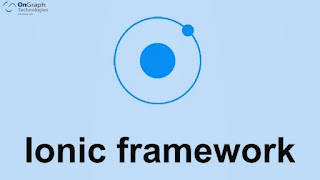Why should developers choose the Ionic framework in 2022?
Our phones are our primary means of organizing our life, finding amusement, and communicating with others. Cross-platform app development is a popular approach to mobile app development. Cross-platform apps make up about 30% of the Apple App Store and 50% of the Google Play Store.
Is Ionic app development a good fit for your idea in 2022? Let's go through what Ionic is, what it can do, and what to be careful of if you're thinking about using it for mobile app development.
What is Ionic App Development?
Ionic is a cross-platform UI software development kit that is open-source. Ionic makes use of industry-standard web technologies such as HTML, CSS, and JavaScript. Those with a basic understanding of web development can make apps and submit them to an app store.
Ionic was founded in the year 2013. It is the most widely used cross-platform mobile development technology stack in the world. Ionic has been used to create over five million apps since its inception. Npm has 3 Ionic modules available. To work as part of a wider JavaScript ecosystem, requires Node.js to be installed.
Why should developers choose Ionic in 2022?
Frontend developers may use Ionic to construct web pages that run in both WebView and a browser. WebView is an app component that transforms web pages as native apps and displays them.
Apache Cordova plugins are also used by Ionic. Cordova is a web-based framework for developing mobile apps. Instead of using platform-specific APIs, it uses its own.
These APIs are available as plugins for Cordova and can be used to access native functionalities such as the built-in camera, gyroscope, and sensors. Ionic apps may use native APIs thanks to Apache Cordova. It serves as a link between WebView and the operating system of the device.
Ionic Native is a library of Cordova plugins designed to support standard APIs and integration, which is available from Ionic. Ionic is available as a free Community Edition package. Enterprise Edition is a more comprehensive version curated by Ionic's team.
Advantages of Ionic
Developer friendly
It’s flexible
One codebase, multiple apps
Tools with native compatibility
Quick prototyping and a vast selection of UI elements
Testing convenience
Frontend agnostic
Conclusion
At OnGraph, we analyze cross-platform frameworks using use cases and comprehensive research to determine whether they are appropriate for a certain purpose. While the Ionic framework is suitable for developing hybrid applications, the framework of choice varies from person to person.
We propose that you look over these Ionic use cases once and then choose based on your requirements.
Your application concept is novel, and you intend to build a business.
You're working with a limited budget and want to cut development costs to a bare minimum.
Your app is straightforward, doesn't necessitate extensive adjustments, and requires a native-like experience.
You have a lot of experience with web-based technology.




Comments
Post a Comment